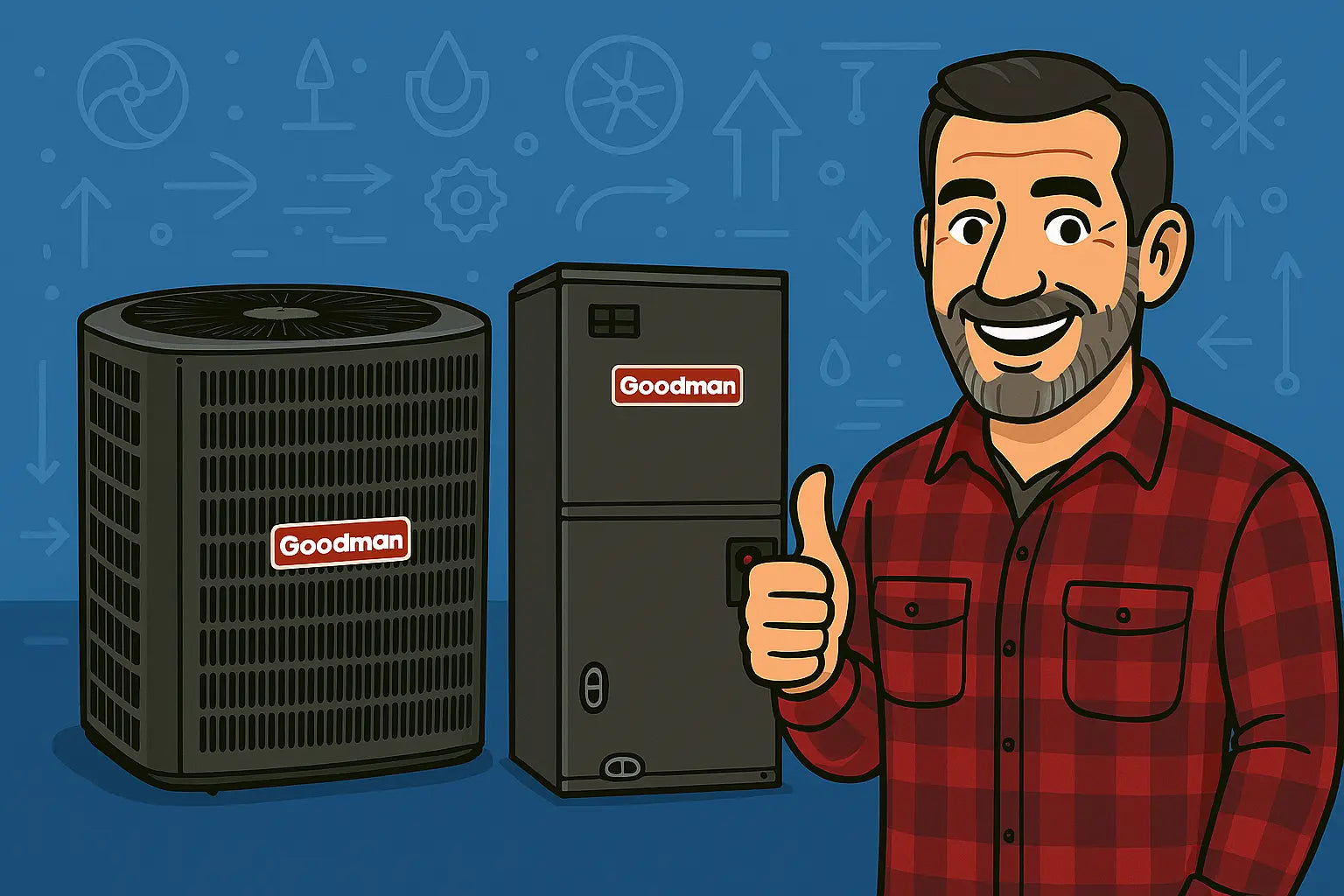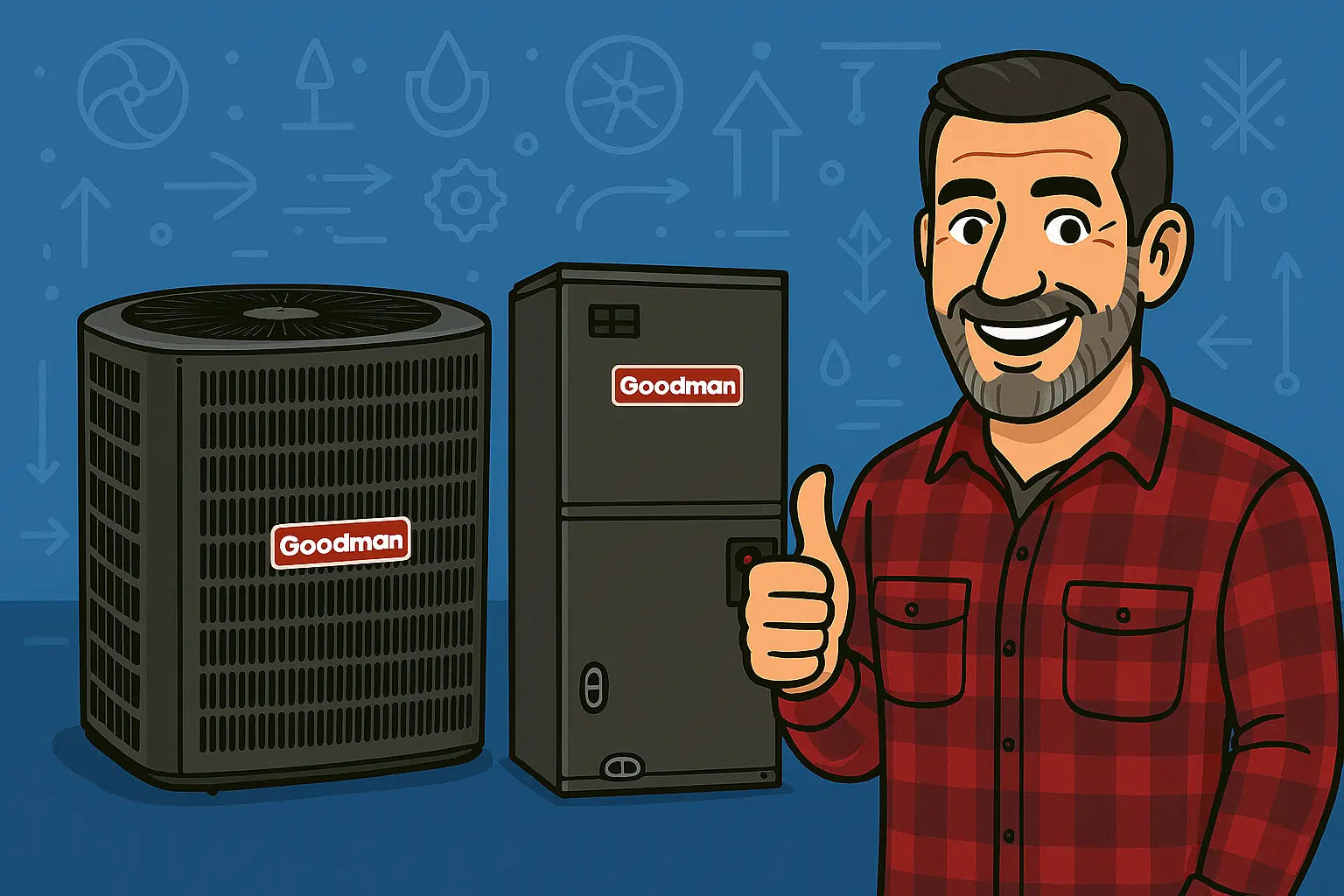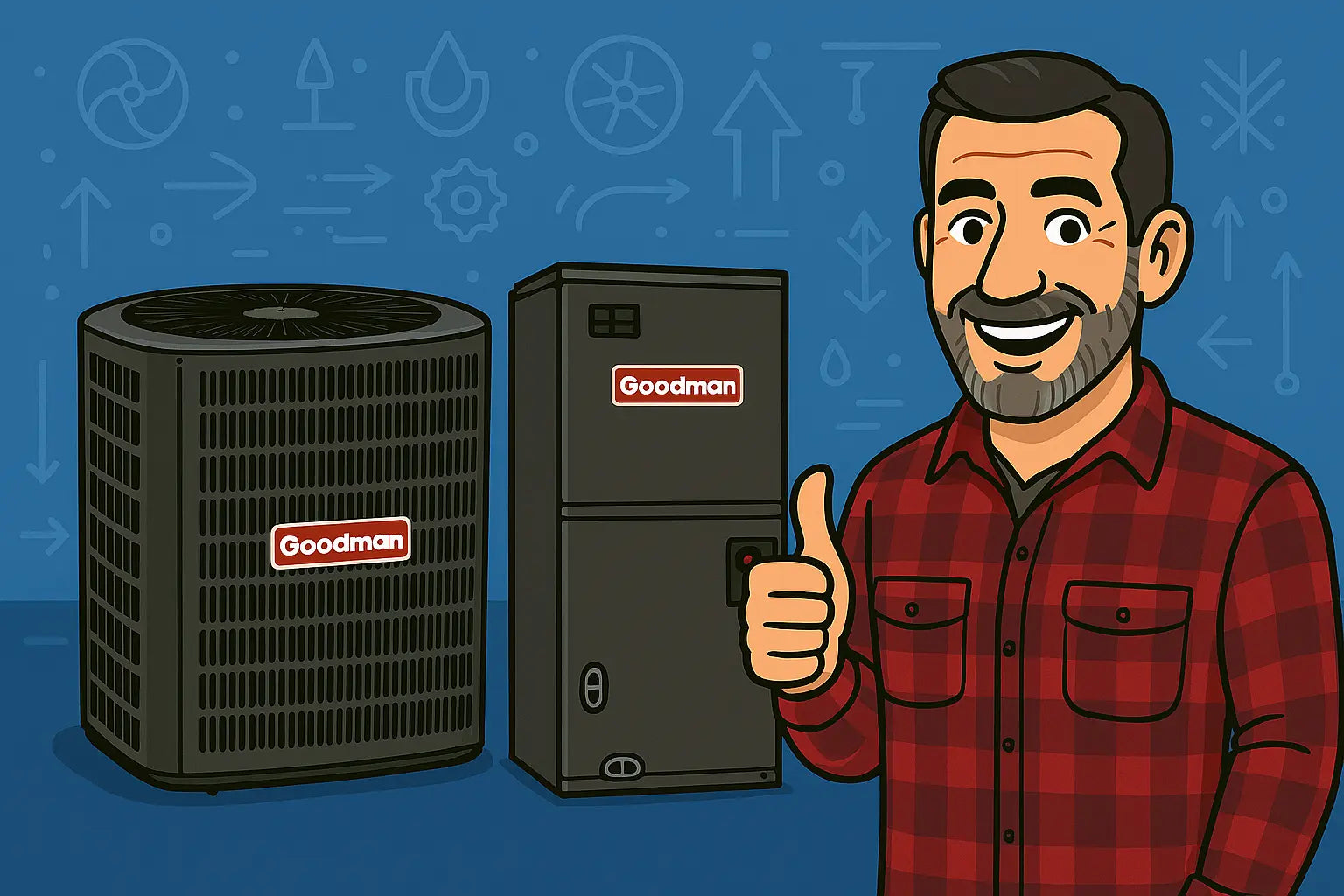News

Exploring the Different Types of Central Air Conditioning Units: A Homeowner’s Guide
Choosing the right central air conditioning system can be overwhelming, with so many options available for modern homes. In this guide, Mike Sanders breaks down the types of central AC, types of central air conditioning system, and types of central air conditioning units to help homeowners make an informed decision. From the classic split system to space-saving packaged units, versatile heat pumps, ductless mini-splits, hybrid systems, and energy-efficient geothermal setups, each option has its own benefits, limitations, and ideal applications. Understanding these differences can help you maximize comfort, efficiency, and long-term cost savings. For homeowners seeking a reliable, high-efficiency solution, the Goodman 3 Ton 14.5 SEER2 R-32 Bundle combines modern technology with proven performance, making it an excellent choice for year-round comfort. This guide also highlights energy-saving tips and climate considerations to ensure your central AC system fits your home’s unique needs.

Choosing the Right Air Conditioner for Ontario Homes: A Comprehensive Guide
Mike Sanders breaks down everything Ontario homeowners need to know about choosing the right air conditioner in Ontario. Learn about energy-efficient systems, AC unit types, modern refrigerants, and professional installation tips to keep your home cool and comfortable all summer.

How to Safely Install and Start Up Your Goodman 96% AFUE Gas Furnace (GR9S960803BN)
Mike breaks down the installation and safe startup of the Goodman GR9S960803BN 96% AFUE gas furnace. From gas line connections to venting and first-time operation, this guide ensures your furnace is efficient, safe, and ready to heat your home.

Navigating the Shift from Freon: Embracing Modern Refrigerant Air Conditioning Systems
Mike Sanders explains the shift from traditional air conditioners with Freon to modern refrigerant aircon systems. Learn why upgrading to R-410A or R-32 improves efficiency, reduces environmental impact, and enhances home comfort. Get tips on installation, maintenance, and choosing the right system for your needs.

Goodman 2-Ton Installation Simplified: Condenser & Coil Setup
Ready to get your Goodman 2-Ton 14 SEER2 condenser (GLXS3BN2410) and CAPTA2422B3 coil up and running? Mike’s here with a step-by-step installation guide, tips, and troubleshooting hacks to make the process smoother than a perfectly balanced blower motor.

Wall Air Conditioners: How to Choose the Right Wall Unit for Your Home
Looking for the perfect wall air conditioner? Dive into our comprehensive guide covering everything from small wall air conditioners to portable wall AC units. Whether you're after a cheap wall AC unit or a wall air conditioner sale, we've got you covered. Explore the benefits of wall-mounted mobile air conditioners and built-in air conditioning units to find the ideal cooling solution for your space.

HVAC Made Easy: A Tech’s Tips for Installing and Troubleshooting Your Goodman 2-Ton System
Ready to tackle the Goodman GLXS3BN2410 condenser, CAPTA2422B3 coil, and GR9S960803BN furnace? Mike’s got you covered with a step-by-step guide packed with pro tips, troubleshooting hacks, and a dash of humor to make your HVAC journey smoother than a well-oiled blower motor.

Choosing the Right Compatible and Digital Air Conditioner: Expert Tips for Homeowners
Mike Sanders explains the difference between a compatible air conditioner and a digital air conditioner, and why choosing the right system matters. Learn how modern units improve comfort, integrate with smart home devices, and save energy, including tips on installation, maintenance, and efficiency.

The Door Air Conditioner Debate: What Homeowners Need to Know
Mike Sanders explains why a door air conditioner or DIY air conditioning unit door setup often falls short. Learn the risks, common mistakes, and smarter alternatives—including mini-splits, through-the-wall units, and modern R-32 systems—for consistent, energy-efficient home cooling.

Achieving Ultimate Comfort with the Right Air Conditioning System
Mike Sanders explains how to achieve ultimate air conditioner comfort at home with the right comfort air conditioning units and comfort air conditioning system. Learn about sizing, energy efficiency, smart features, and maintenance tips to keep your home consistently cool and comfortable.

Big AC Units for Whole-House Comfort: What Homeowners Need to Know
Mike Sanders breaks down everything homeowners need to know about large air conditioning units and big AC units for whole-house comfort. Learn how to choose the right size, understand efficiency, and avoid common mistakes when selecting an air conditioner to cool your whole house.

Understanding 2-Ton vs. 3-Ton Window Air Conditioners: Which One Fits Your Home?
Mike Sanders explains the differences between 2-ton window air conditioners and 3-ton window AC units, helping homeowners choose the right cooling solution. Learn about sizing, energy efficiency, installation tips, and when a whole-home system may be the better choice.
